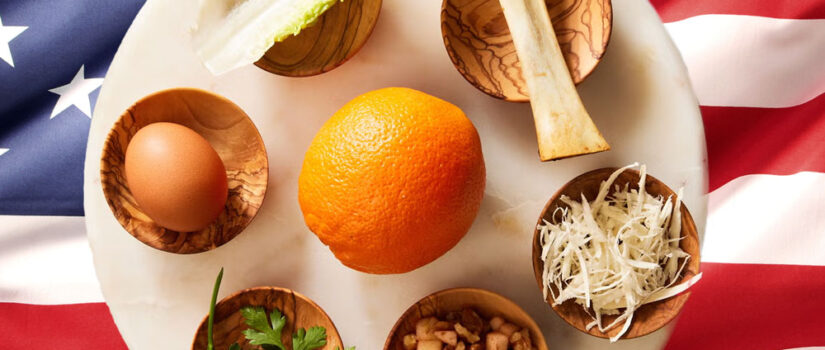Rabbi Jamie’s Corner
April 2025
We’re happy to share these thoughts on current events or holiday themes from Rabbi Jamie Hyams (our Development Director). Feel free to reach out to Jamie directly at jamie@hflasf.org if you would like to talk about any of the ideas discussed here.
In years past, as Passover approached, my thoughts would turn to the Exodus and how the Israelites came together to form a seemingly unified Jewish people. Over the millennium since the Exodus, we strove to create a society with compassion, dignity, and justice at its core and rituals and prayers to express these values. This year, with the continuing war in Gaza and the political environment at home, this unity is being put to the test.
At Hebrew Free Loan, we are proud to serve a broad community. And yet, as I write this column, I’m cognizant that our readership, like our broader society, is diverse and not always cohesive. Each of us has had different life experiences. We don’t all express our Jewish identity in the same way, and many readers may not be Jewish. We don’t all vote the same. I don’t want to unintentionally put someone off with my personal views, but I want to address the times in which we live with honesty and authenticity. Passover’s themes of liberation and freedom, even the phrase with which we traditionally end our seder, “Next year in Jerusalem,” are interpreted differently depending on who you are and what life experiences you bring to the table.
Over time, varying traditions evolved to reflect the values of the times. Our seder plates, laden with both food and meaning, are meant to evoke collective ideas: haroset for the bricks the Israelite slaves made; hazeret/ bitter herbs for the sting of slavery; and karpas (often celery or parsley) for the tears shed in slavery. These symbols provoke questions that lead us into deeper conversations and often diverse interpretations.
The Jewish community today is both diverse and divided, as is our greater American society. With diversity, while there may be differences, there is still unity. Diversity recognizes that while we are created equal, we are not identical. At some seders, you may find a Miriam’s cup, which symbolizes the importance of women during the Exodus. You may find legumes, which many Jews of Ashkenazi backgrounds do not eat during Passover, while Sephardic Jews do. At my family’s seder table, we have two different kinds of haroset: an Ashkenazi version made with apples, wine, and nuts to honor my grandparents’ European roots and a North African version made of apricots, nuts, and spices to recall my great-grandmother’s sojourn in Algiers. Far from dividing our people, these diverse symbols strengthen us. They remind us of our past; they invite us to consider what it means to be a slave or to be a free person, what it is to take action and chart our own destiny.
In times such as ours, when our communities are being pulled in different directions, what are the commonalities to which Jews and Americans are committed? Even the most ubiquitous of American unity, the flag, can be seen as divisive.
Every morning of my childhood, I started my school day by pledging allegiance to a flag that represented “one nation, with liberty and justice for all.” The United States was founded to ensure religious freedom, and our Constitution was written to express these values. When I pledged to the flag and heard the voices of my classmates speaking in unison, I felt a part of something bigger than me, something that was inherently good and stood for the best values of our country. When I fly a flag on national holidays — a flag that, as Jewish Americans, my family members proudly defended — passersby assume I belong to a certain political party. What was once a clear symbol of national unity and family pride has become muddled.
At its core, Judaism is a system that expresses compassion, dignity, and justice. Our tradition models acceptance of difference under unity. At Passover, the diversity of foods, music, traditions, and interpretations is the Jewish communities’ superpower. Our ability to accept and embrace diversity is, in my opinion, what will hold us together through difficult times.
Hebrew Free Loan was founded to help the Northern California Jewish community become and remain self-sufficient. Our work expresses compassion, dignity, and justice, just like the Constitution does. Lu y’hi (let it be) that our greater United States can also embrace the beauty of our diversity, and we can find within ourselves the values of compassion, dignity, and justice upon which our union was founded.
Chag Sameach,
~ Rabbi Jamie

